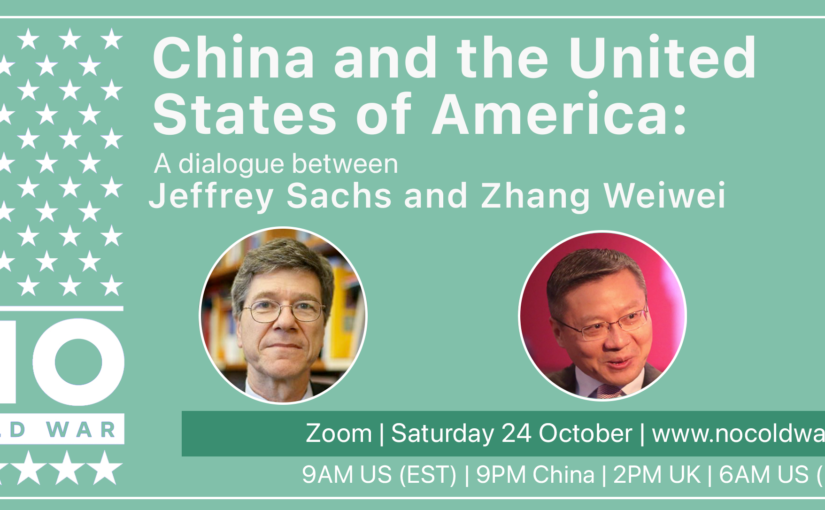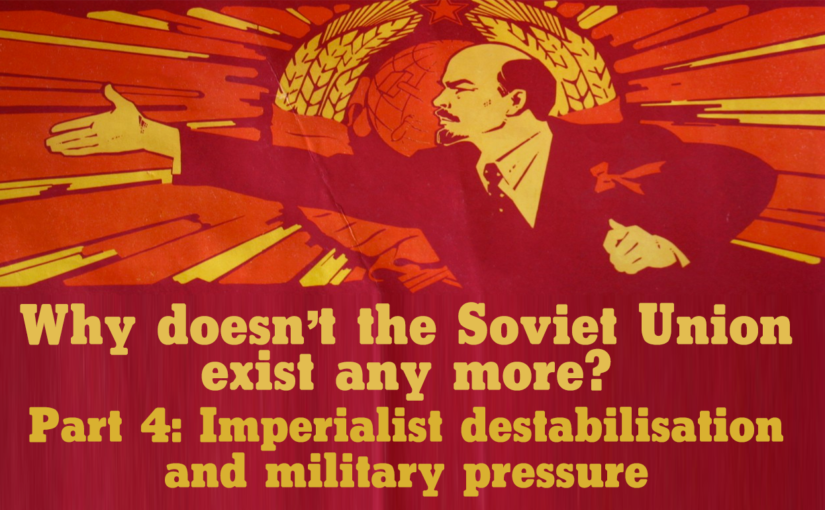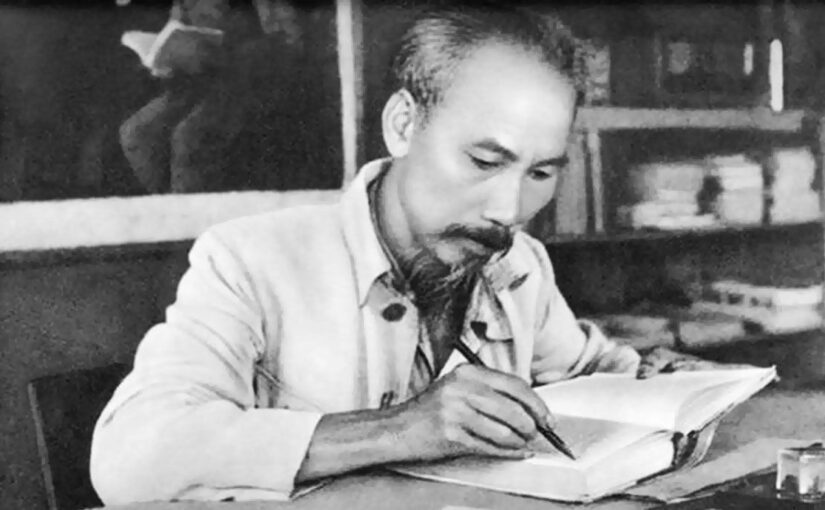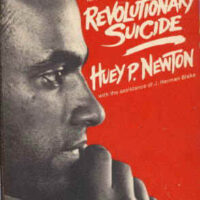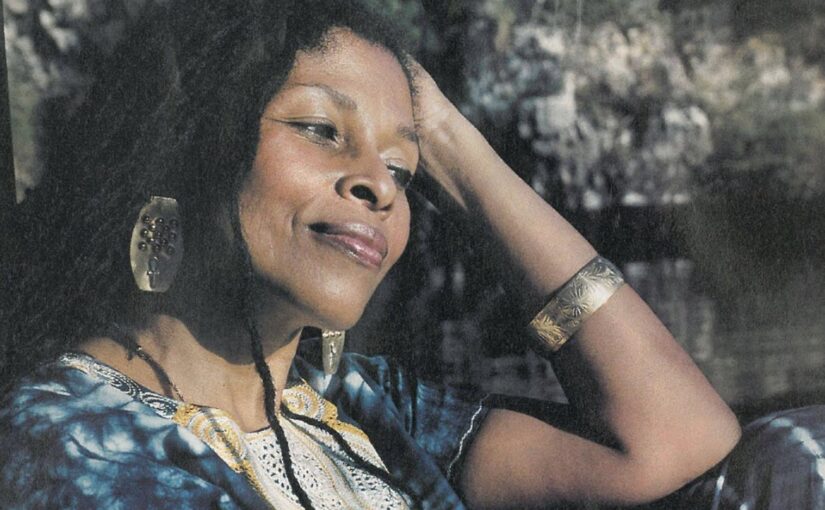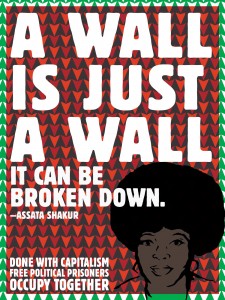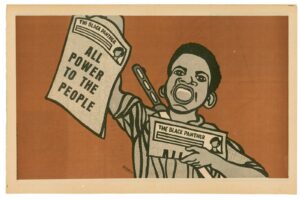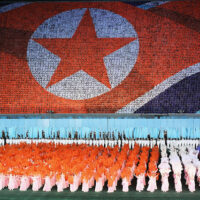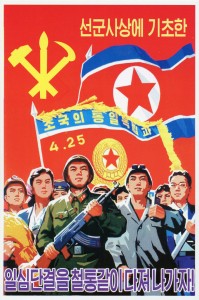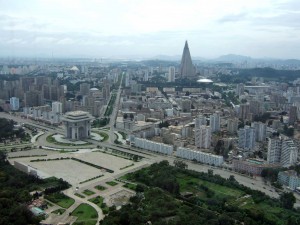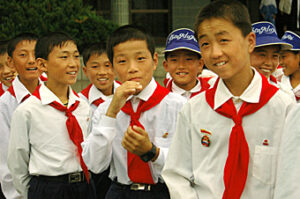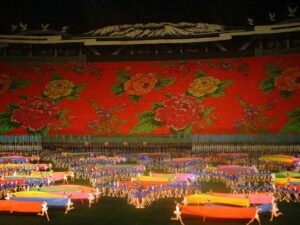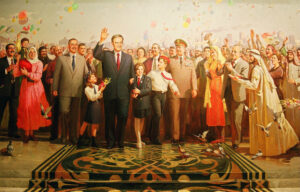Not for a moment since 1917 have the fascist and democratic Western powers abandoned the idea of defeating the Soviet Union.1
Full-court press against the USSR
Seeing the Soviet Union experiencing economic and political difficulties, and noting the deepening split within the socialist camp, it dawned on US strategists that there was potentially a historic opportunity to push the USSR off the cliff. Having identified this opening in the late 1970s, the US ruling class pursued it relentlessly: rolling back detente, expanding sanctions, massively increasing spending on military technology, and drawing the Soviet Union deeper and deeper into war in Afghanistan. As Yuri Andropov recognised in 1982: “The more warlike factions in the West have become very active, their class-based hatred of socialism prevailing over considerations of realism and sometimes over plain common sense… They are trying to win military superiority over the USSR, over all the countries of the socialist community.”2
Inaugurated as US president in January 1981, the ultra-conservative Ronald Reagan launched a “full-court press” against the Soviet Union: “a tough US global military strategy aimed at promoting internal Russian reforms and ‘dissolution or at least shrinkage’ of the Soviet empire.”3
Arms race
The arms race that the United States in the Reagan era forced upon the Soviet Union reached its desired objective: that the Soviet Union armed itself to death. The consequent economic burden for the USSR led to serious social dislocations in the country, which meant that the leading power of the socialist camp could hardly do justice to its domestic and foreign policy responsibilities.4
The Soviet Union had long stuck to a system of ‘strategic parity’ of nuclear weapons development, sparing no effort to keep up with (but not surpass) the US. As long as it had the ability to retaliate against any US-initiated nuclear strike, it could more-or-less guarantee that such a strike wouldn’t take place (such is the brutal but compelling logic of ‘mutually assured destruction’).
At the core of Reagan’s full-court press was a strategy to bankrupt the Soviet Union by vastly increasing military expenditure, forcing the USSR to follow suit. Sam Marcy observed that “the Reagan administration went all out and spent more than $2 trillion to overwhelm the USSR. Previous agreements on nuclear treaties, which seemed to have stabilised the situation, were undermined by the Reagan administration.”5
As discussed briefly in the second article in this series6, capitalism has a built-in advantage over socialism in areas of production that don’t directly benefit people. In a capitalist economy, an arms race creates demand (for high-tech weaponry), which stimulates investment, which creates profit, which keeps the ruling (capitalist) class happy, which in turn keeps its governments stable. In a socialist economy – oriented specifically to meeting people’s needs rather than generating profit for a small minority – an increased focus on military development requires divestment of resources from other areas of production – “diverting material and human resources from the civilian to the military economy, to meet the challenge of Western military pressure”.7 Given slowing economic growth, and given existing problems with food production, housing provision and light manufacturing, the arms race caused genuine difficulties. These served to make the ruling (working) class less happy and the domestic political situation less stable.
Although western propaganda predictably portrayed the Soviet Union as a hostile, aggressive power, the Soviet government was in fact desperate to put an end to the arms race and to agree a stable detente. The USSR unilaterally committed to a no-first-strike policy, and put forward a range of disarmament proposals, including a two-thirds reduction of medium-range weapons by both the USSR and Nato.
Boris Ponomarev summed up the Soviet attitude concisely: “The arms race has been imposed on the Soviet Union entirely by the US and other Nato countries. The US has taken the initiative all along in developing and perfecting nuclear weapons and their delivery vehicles ever since the advent of the atom bomb. Each time the USSR was forced to respond to the challenge to strengthen its own defences, to protect the countries of the socialist community and to keep its armed forces adequately equipped with up-to-date weaponry. But the Soviet Union has been and remains the most consistent advocate of the limitation of the arms race, a champion of disarmament under effective international control. Since the end of World War II the USSR has tabled dozens of proposals in this area… The arms race being whipped up by imperialism has already produced giant arsenals of lethal weapons of unprecedented destructive capacity and has devoured colossal resources that could otherwise have been used for the benefit of mankind.”8
Contrast this with the leading representative of the US ruling class, Ronald Reagan, arguing in March 1983 for a ramping up of US nuclear arms production and for a permanent end to detente:
In your discussions of the nuclear freeze proposals, I urge you to beware the temptation of pride — the temptation of blithely declaring yourselves above it all and label both sides equally at fault, to ignore the facts of history and the aggressive impulses of an evil empire, to simply call the arms race a giant misunderstanding and thereby remove yourself from the struggle between right and wrong and good and evil… The reality is that we must find peace through strength.9
Showing off the depth of his ideologically-driven idiocy, he added: “I would rather see my little girls die now, still believing in God, than have them grow up under communism and one day die no longer believing in God.”
The escalation in rhetoric was accompanied by an escalation in economic warfare and geostrategic manoeuvring. Keeran and Kenny point out that the US aimed to “deny high technology to the Soviet Union and reduce European imports of Soviet gas and oil. By 1983, American high-tech exports to the Soviet Union were valued at only $39 million compared to $219 million in 1975. This economic warfare did not stop with denying the Soviets access to high-tech; the US also sabotaged the goods the Soviets did receive.”10
Meanwhile, realising that the Soviets were heavily dependent on oil exports to generate hard currency with which they could pay for the imports they needed from the west (particularly grain and high-tech products), the US organised for its client states in the Persian Gulf to increase oil production, thereby reducing the price of oil on the world market. Added to all this was “an increased propaganda offensive, diplomatic moves to reduce Soviet access to Western technology, the disruption of the Soviet economy by exporting faulty equipment, and an effort to bankrupt the Soviets by initiating a military build-up”.11
The defining moment of the arms race was Reagan’s announcement of the Strategic Defense Initiative (SDI) – ‘Star Wars’, an anti-ballistic missile system designed to prevent the possibility of nuclear missile attacks against the United States. Although not discussed in such blunt terms, its military objective was to disrupt the system of mutually assured destruction and strategic parity, allowing the US to freely engage in nuclear blackmail. An additional aim was to entice the USSR into developing a rival system, thereby further damaging the Soviet economy. In the end, Star Wars was abandoned – having had around $100 billion thrown at it. The US didn’t succeed in building a nuclear missile defence system on anywhere near the scale it had planned, but it did succeed in inspiring another round of frantic investment in military R&D in the USSR.
The cold war heats up
In the late 70s and early 80s, the global situation seemed quite favourable to the Soviet leaders, with the defeat of US imperialism in Vietnam12, the the first socialist revolution in the Caribbean (in Grenada)13, the victory of the revolutionary national liberation movements in Mozambique, Angola, Guinea Bissau and Zimbabwe, the Sandinista revolution in Nicaragua, along with revolutionary experiments in Ethiopia and Afghanistan. Ponomarev wrote in 1983 that “revolutionary processes are now at work in many developing countries. The national democratic revolution in Afghanistan under the leadership of the People’s Democratic Party has enabled the people of that country to topple the former reactionary anti-popular regime and to embark on the path of progressive socio-economic development. The victorious revolution in Ethiopia, the revolutionary liberation of the peoples of Angola, Mozambique and other former colonies of Portugal, the ending of the racialist regime and the gaining of independence by the people of Zimbabwe gave an inspiring impetus to the progressive forces of Africa. The victory of the popular revolution in Nicaragua, the rising tide of liberation struggles in Central America and the Caribbean have signified an expansion of the zone of freedom in the Western hemisphere. The peoples of South Yemen, the People’s Republic of the Congo and of some other countries are following the path of socialist development.”14
By this time, however, the western powers were engaged in a massive ‘rollback’ programme, supporting rebellions against progressive governments in Angola, Afghanistan, Nicaragua, Ethiopia, Mozambique, Cambodia and South Yemen. Vijay Prashad writes that the CIA and the Pentagon “abandoned the idea of the mere ‘containment’ of communism in favour of using military force to push back against its exertions — even when these were met with massive popular support”.15 All the states under attack had an urgent need for military and civilian aid, which the Soviet Union had little choice but to provide. In 1983 the US took advantage of the chaotic situation in Grenada’s ruling New Jewel Movement to overturn the Grenadian Revolution by means of military invasion. Meanwhile Vietnam and Cuba continued to be very reliant on Soviet generosity. The USSR was becoming over-extended. Keeran and Kenny note that “Soviet society never enjoyed the luxury of internal development free of the threat of outside aggression. The cost of defending itself and aiding its allies escalated yearly and drained resources away from socially useful domestic investments. By 1980, Soviet aid to its allies cost $44 billion a year, and arms spending consumed 25 to 30 percent of the economy.”16
Peaceful evolution
Combined with the military escalation, the US also pursued a ‘peaceful evolution’ strategy, stepping up its support for the dissident movement in the USSR and for assorted ‘pro-democracy’ (pro-capitalist) movements in Eastern/Central Europe. Radio Free Europe and Radio Liberty spearheaded a round of intense ideological warfare: “Both stations fomented nationalism, stirred up outrage over the Chernobyl disaster, encouraged opposition to the Soviet war in Afghanistan, provided a platform for pro-market advocates like Yeltsin, and aired unsubstantiated corruption charges against the Party leader, Yegor Ligachev, after he opposed Gorbachev.”17
Speaking in 1979, Andropov noted the pro-western orientation of, and imperialist support for, the dissident movement:
A few individuals have divorced themselves from Soviet society and engage in anti-Soviet activity, violate the law, supply the west with slanderous information, circulate false rumours, and attempt to provoke various antisocial incidents. These renegades have not and cannot have any support within the country. This is precisely why they do not dare to come out openly at a factory, on a collective farm or in an office. They would have to take to their heels from there, figuratively speaking. The existence of the so-called ‘dissidents’ has been made possible exclusively by the fact that the enemies of socialism have geared the western press, diplomatic, as well as intelligence and other special services to work in this field. It is no longer a secret to anyone that ‘dissidence’ has become a profession of its own kind, which is generously rewarded with foreign currency and other sops that differ but little, in effect, from what the imperialist special services pay to their agents.18
China expert David Shambaugh points out that ‘peaceful evolution’ figures prominently in the Chinese Communist Party’s post-mortem on European socialism. “Chinese analysts, and the CCP itself, have been obsessed with this subject and have alleged a US strategy for years – dating back to John Foster Dulles’s first use of the term in the 1950s. Peaceful evolution strategies are said to employ a variety of what today would be described as ‘soft power’ tools: shortwave radio broadcasts, the promotion of human rights and democracy, economic aid, support for nongovernmental organisations and autonomous trade unions, spreading the ideology of capitalism and freedom, supporting underground activists, infiltrating Western media publications into closed countries, academic and cultural exchanges, and so on. Peaceful evolution was said to be the ‘soft twin’ of ‘hard containment.'”19
Probably the most important element of the ‘full-court press’, however, was US support for the Mujahedin uprising in Afghanistan, which led to manifold economic and political difficulties in the Soviet Union.
Disaster in Afghanistan
Background
Making a considerable part of the Soviet Union’s southern border, Afghanistan had always been important to the USSR, and the first treaty of friendship between the two countries was signed in 1921 (indeed it was one of the first agreements signed between the Soviet Union and any country). The crucial nature of Soviet-Afghan relations is illustrated by the fact that, in his 1924 book Foundations of Leninism20 (a key text seeking to summarise Marxism-Leninism in a way that could be easily digested by the Soviet masses), Stalin discusses the ideological basis of Soviet support for Afghanistan in its struggle against British domination:
The revolutionary character of a national movement under the conditions of imperialist oppression does not necessarily presuppose the existence of proletarian elements in the movement, the existence of a revolutionary or a republican programme of the movement, the existence of a democratic basis of the movement. The struggle that the Emir of Afghanistan is waging for the independence of Afghanistan is objectively a revolutionary struggle, despite the monarchist views of the Emir and his associates, for it weakens, disintegrates and undermines imperialism.
Good relations between the two countries survived the entire period of existence of the USSR. Although there were some ups-and-downs in the relationship – largely related to whether the Afghan administration under the extended rule of King Zahir Shah (lasting from 1933 through 1973) was leaning more towards the US or the USSR at any given moment – Afghanistan was generally considered a friendly neighbour, and its leaders had a vision of independence and national modernisation that the Soviet Union supported.
From the mid-1950s onwards, Afghanistan was the beneficiary of significant aid, investment and preferential loans from the Soviet Union. Khrushchev and Nikolai Bulganin announced the first major development loan – worth $100 million – on visiting Kabul in 1955. In the ensuing decades, hospitals, schools, roads, irrigation systems, plumbing systems, factories, power stations and more were built (and sometimes operated) with Soviet assistance. Tens of thousands of Afghans were educated in Soviet universities.
The first Afghan communist organisations were set up in the mid-1960s: Eternal Flame, which was strongly aligned with China, and the People’s Democratic Party of Afghanistan (PDPA), which was closer to the Soviet Union. The PDPA split soon after its formation into two rival factions – the Khalq (‘masses’) and the Parcham (‘banner’) – whose murderous feud would be one of the defining problems of Afghan politics for the ensuing two decades.21
Faced with increasingly harsh repression by the state forces headed by President Mohammad Daoud (whom the PDPA had helped to seize power in 1973), the PDPA leadership made the decision to leverage its significant support base in the army to take power, in what became known as the Saur (April) Revolution. The Presidential Palace in Kabul was stormed on 28 April 1978, Daoud and his guards were killed, and the Democratic Republic of Afghanistan (DRA) was proclaimed, with veteran communists Nur Mohammad Taraki and Babrak Karmal as its president and vice-president.
The proclaimed objective of the new government was to break the centuries-old grip of feudalism and to establish Afghanistan as a progressive, modern country – a tall order for a country that faced infant mortality levels of 269 per thousand, an average life expectancy of 35, a literacy rate below 10 percent and a primary school attendance rate of 17 percent.22 Stephen Gowans points out that “half the population suffered from TB and one-quarter from malaria.”23 Women in the villages faced total subjugation, were forced to wear the chadri (veil) and were denied access to education. Forced marriage, child marriage and bride-price were pervasive in the countryside.
Therefore the essence of the PDPA’s programme was: “land to the peasants, food for the hungry, free education for all.” A PDPA militant reflected: “We knew that the mullahs in the villages would scheme against us, so we issued our decrees swiftly so that the masses could see where their real interests lay … For the first time in Afghanistan’s history women were to be given the right to education … We told them that they owned their bodies, they could marry whom they liked, they shouldn’t have to live shut up in houses like pets”.24
The PDPA government introduced laws cancelling all debt for poor peasants (thereby benefiting nearly two-thirds of the population) and initiating land reform. It made a clear commitment to gender equality, setting up public education for girls and abolishing bride-price, arranged marriage and child marriage. Michael Parenti writes that “the Taraki government proceeded to legalise labour unions, and set up a minimum wage, a progressive income tax, a literacy campaign, and programmes that gave ordinary people greater access to health care, housing, and public sanitation. Fledgling peasant cooperatives were started and price reductions on some key foods were imposed… The Taraki government moved to eradicate the cultivation of opium poppy. Until then Afghanistan had been producing more than 70 percent of the opium needed for the world’s heroin supply. The government also abolished all debts owed by farmers, and began developing a major land reform programme.”25
These changes weren’t to everybody’s taste. In the capital, Kabul, the PDPA’s initiatives won widespread support. The landlords in the countryside, however, were able to tap into a deep-rooted social conservatism in order to stoke up opposition to the government. Afghan central governments have always had limited control over the villages and tribes, and the more stable governments have enjoyed an uneasy accommodation with the countryside that consists largely of leaving it to its own devices. For a socialist government determined to break the back of feudalism, however, this wasn’t an acceptable option.
Land reform, debt cancellation and gender equality should have been popular among the masses of poor peasants, but the landowners and mullahs had better access to these people and were able to convince many of them that the PDPA’s programme was a ruthless attack on Islam by godless urban communists.
Writing just a few months after the PDPA’s capture of power, Fred Halliday described the early beginnings of the organised opposition to the DRA:
The forces of counter-revolution have, after initial hesitations, begun to reassemble. Most of the royal family itself is now either dead or complacently exiled, and is unlikely to lead a counter-revolution; but other forces that benefited from the old order are active. These include landowners, tribal chiefs, upper civil servants and mullahs, and there are reports of thousands fleeing to Pakistan where they have predictably appealed for help to Saudi Arabia and Iran… Taraki has made a point of inviting tribal delegations led by their khans to come to Kabul and meet him — in the historic traditions of Afghan rulers — and has repeatedly stressed the DRA’s respect for Islam. Nevertheless, the dangers of counter-revolutionary action, given the nature of Afghan society, the weakness of the PDPA and the ferocity of the DRA’s enemies, must be substantial… 26
He added, with remarkable prescience: “It is evident that a peasantry plagued by tribalism and religious mystification can, under certain circumstances, be temporarily mobilised to fight a new urban-based revolutionary regime. The United States, China, Iran and Pakistan could all exploit the DRA’s difficulties.”
The Soviet intervention
The US and Pakistan immediately started to assist anti-PDPA groups. As Halliday predicted, it wasn’t difficult to find Afghans willing to take up arms against the government, particularly when these (increasingly sophisticated) arms were accompanied by a steady income paid for by Pakistan and Saudi Arabia. The CIA and ISI (Pakistan’s Inter-Services Intelligence) coordinated to launch “a large scale intervention into Afghanistan on the side of the ousted feudal lords, reactionary tribal chieftains, mullahs, and opium traffickers”.27
Zbigniew Brzezinski, then National Security Advisor to president Jimmy Carter, later admitted that the operation against the Afghan government started well before the arrival of the Soviet army: “According to the official version of history, CIA aid to the Mujaheddin began during 1980, that is to say, after the Soviet army invaded Afghanistan on December 24, 1979. But the reality, closely guarded until now, is completely otherwise: Indeed, it was July 3, 1979 that President Carter signed the first directive for secret aid to the opponents of the pro-Soviet regime in Kabul”.28
Faced with major outbreaks of resistance to government authority – most prominently the Herat uprising of March 1979 – the PDPA was forced to defend itself through heavy repression against the insurgents. Braithwaite estimates that “by midsummer 1979 the government controlled perhaps no more than half the country”. To make matters worse, the longstanding split within the PDPA between the Khalq (led by president Taraki and his minister of national defence, Hafizullah Amin) and the Parcham (led by vice-president Karmal) had deteriorated again after a period of tense unity. The leading Parchamites were despatched as ambassadors to various far-flung countries, and many lower-ranking ones were shot.
Throughout 1979, the Afghan government made repeated requests to the Soviet Union to intervene militarily to save the Saur Revolution from a reactionary, US-backed uprising. Fearing a final collapse of their strategy of detente with the west – not to mention the possibility of upsetting their allies in the developing countries (“all the nonaligned countries will be against us”, predicted Soviet foreign minister Andrei Gromyko29) – the Soviet leadership was not at all keen to get involved beyond providing weaponry, advice and economic support to the PDPA.
The turning point came when violent disagreements and recriminations, no doubt fuelled in part by the increasingly worrying and unstable situation in the country as a whole, led to an intense power struggle between the most prominent Khalq leaders, Taraki and Amin. Amin gained the upper hand, removing Taraki from power and ordering his death on 14 September 1979. This turn of events caused the Soviets to re-assess. They had considered Taraki more trustworthy than Amin, and were justifiably concerned that the murderous infighting within the PDPA was jeopardising the efforts to defeat the insurgency. “Step by step, with great reluctance, strongly suspecting that it would be a mistake, the Russians slithered towards a military intervention because they could not think of a better alternative.”30
The first Russian troops crossed the border into Afghanistan on 25 December 1979. The scope of their mission was limited: help their contacts in the PDPA to overthrow Amin and establish the Parcham leader Babrak Karmal as head of state; end the feuding in the PDPA; help the Afghan Army gain the upper hand against the uprising; and come home soon. “The aim was not to take over or occupy the country. It was to secure the towns and the roads between them, and to withdraw as soon as the Afghan government and its armed forces were in a state to take over the responsibility for themselves.”31
More than a little hypocritically, the US administration led a campaign of global outrage against the Soviet intervention, claiming it was a violation of international law and an example of imperialism. Sanctions against the Soviet Union were hurriedly put in place, as was a boycott of the 1980 Moscow Olympics. More importantly, “the Soviet intervention was a golden opportunity for the CIA to transform the tribal resistance into a holy war, an Islamic jihad to expel the godless communists from Afghanistan. Over the years the United States and Saudi Arabia expended about $40 billion on the war in Afghanistan. The CIA and its allies recruited, supplied, and trained almost 100,000 radical Mujahedin from forty Muslim countries including Pakistan, Saudi Arabia, Iran, Algeria, and Afghanistan itself. Among those who answered the call was Saudi-born millionaire right-winger Osama bin Laden and his cohorts.”32
In spite of their public displays of horror, the evidence indicates that the US was more than happy to see the Soviet Union intervene military in Afghanistan. Brzezinski was candid on this point:
We didn’t push the Russians to intervene, but we knowingly increased the probability that they would… That secret operation [support for the Mujahedin from mid-1979] was an excellent idea. It had the effect of drawing the Russians into the Afghan trap and you want me to regret it? The day that the Soviets officially crossed the border, I wrote to President Carter, essentially: ‘We now have the opportunity of giving to the USSR its Vietnam war.’ Indeed, for almost 10 years, Moscow had to carry on a war that was unsustainable for the regime, a conflict that bought about the demoralisation and finally the breakup of the Soviet empire.33
Vast quantities of money and weapons were channelled to the Afghan resistance via Pakistani military intelligence, who established training camps on the Afghan border, designed supply routes, and worked feverishly (albeit largely fruitlessly) to establish some unity between the seven major Islamist resistance groups.
Stalemate
For the Soviets, the intervention turned out to be much more difficult than they had imagined. Their Afghan allies were divided and often demoralised; meanwhile their enemies were armed with sophisticated weaponry, had significant support among the local population, were fuelled by a vehement hatred of the infidel communist invaders, and were able to leverage Afghanistan’s mountainous territory to their advantage. Meanwhile the Red Army was not trained for a counter-insurgency war. The last major war it had fought was World War II. The war it was trained to fight was a defensive operation against a large-scale Nato land invasion and aerial bombardment. Fighting mujahids in mountain hideouts was a long way outside the Soviet generals’ comfort zone.
Odd Arne Westad writes that “from 1981 onwards the war turned into a bloody stalemate, in which more than one million Afghans died and at least 25,000 Soviets. In spite of well-planned efforts, the Red Army simply could not control the areas that were within their operational zones — they advanced into rebel strongholds, kept them occupied for weeks or months, and then had to withdraw as the Mujahedin concentrated its forces or, more often, because its opponents attacked elsewhere.”34
While there were undoubtedly atrocities on both sides, the Soviets as a whole acted honourably, conceiving of their mission as an internationalist duty to aid a fraternal state that was being subjected to a US-sponsored war of regime change. In the areas they controlled, they built schools, wells, irrigation systems and power stations, and helped the local population to live something along the lines of a normal life. British journalist Jonathan Steele, an opponent of the Soviet intervention, writes: “What I saw in 1981, and on three other visits to several cities over the 14 years that the PDPA was in charge, convinced me that it was a much less bad option than the regime on offer from the western-supported Mujahedin.”35 Braithwaite concurs: “When I visited Afghanistan in September 2008 — a national of one of the foreign countries now fighting there — I was told by almost every Afghan I met that things were better under the Russians… The Russians, I was told, had built the elements of industry, whereas now most of the aid money simply ended up in the wrong pockets in the wrong countries. In the Russian time everyone had had work; now things were getting steadily worse. The last Communist president, Najibullah, had been one of the best of Afghanistan’s recent rulers: more popular than Daoud, the equal of Zahir Shah. Video recordings of Najibullah’s speeches were being sold round Kabul, with their warnings — which turned out to be true — that there would be civil war if he were overthrown.”36
The Red Army didn’t lose any of its major battles in Afghanistan; it won control of hundreds of towns, villages and roads, only to lose them again when its focus moved elsewhere. The US deployed increasingly sophisticated weaponry to the rebel groups at just the right rate so as to prevent the Soviet Union from either winning or withdrawing. Taking over as president in 1981, Reagan majorly stepped up US support for the Mujahedin, and from 1985 the weapons deliveries were increased by a factor of ten and came to include the famous FIM-92 Stinger infrared homing surface-to-air missiles.
Soviet withdrawal and its impact
After several rounds of negotiations and failed attempts to get assurances from Pakistan and the US that they wouldn’t continue to pursue regime change if the Red Army left, the Soviet Union began a phased withdrawal on 15 May 1988. It had not been defeated as such, but it had manifestly failed in the objective of cementing PDPA rule and suppressing the reactionary uprising. Meanwhile, it had expended vast economic, military and human resources. Thousands of young lives were lost. Soviet diplomatic clout had reached its nadir. As the Soviets had themselves predicted, the intervention in Afghanistan weakened their position among the developing nations: “The Soviet entry into Afghanistan divided the NAM states. It weakened their bloc in the UN, where eighteen countries (led by Algeria, India, and Iraq) refused to go along with the US resolution asking for the Soviet withdrawal.”37 Furthermore, the tens of thousands who came home badly injured from Afghanistan mostly found that they weren’t well cared for in terms of housing, pensions and psychological support; their fallen comrades were not, for the most part, given a status befitting their internationalist mission. This correlated with the expanding anticommunism and nihilism of the Gorbachev era.
Beyond the direct economic impact, the Afghanistan war served to further undermine Soviet self-confidence and the popular legitimacy of its government.
To the great majority of Soviets the involvement in Afghanistan had become a byword for an unloved and increasingly superfluous role that their government played in the Third World. To them, withdrawing from Kabul therefore meant the end of a failed intervention. By 1989 the common pride in the Soviet global role that had existed only a few years before was no longer there. It had been replaced not only by a lack of faith in the Soviet system, but also by a conviction that its leaders squandered their resources abroad while people at home lived in poverty… Since a substantial part of the CPSU regime’s overall legitimacy was based on its superpower role abroad, the failure in Afghanistan became a deadly challenge to the key concepts of its foreign policy: Soviet military power and the global advance of socialism.38
Some US hawks – and indeed some Mujahedin leaders – claimed that it was the failure in Afghanistan that brought about the end of the Soviet Union. Burhanuddin Rabbani, a prominent Mujahedin leader who would go on to become President of the Islamic State of Afghanistan from 1992 to 1996, proclaimed: “We forced the communists out of our country, we can force all invaders out of holy Afghanistan … Had it not been for the jihad, the whole world would still be in the communist grip. The Berlin Wall fell because of the wounds which we inflicted on the Soviet Union, and the inspiration we gave all oppressed people. We broke the Soviet Union up into fifteen parts. We liberated people from communism. Jihad led to a free world. We saved the world because communism met its grave here in Afghanistan!”39
The reality is, as ever, more complex. The Afghan war was just one of several factors in the Soviet collapse; after all, the US sustained a comprehensive and shameful defeat in Vietnam, but this didn’t come close to bringing about its collapse as a political entity. The economic decline, the leadership’s attack on Soviet ideology and history, the ongoing process of destabilisation and disinformation: these were all more important contributors to the disintegration of the USSR. But unquestionably the Afghan debacle played its part.
The next (fifth) article in the series will examine the rise of Mikhail Gorbachev and the role that his policies of perestroika and glasnost played in weakening and ultimately destroying Soviet socialism.

